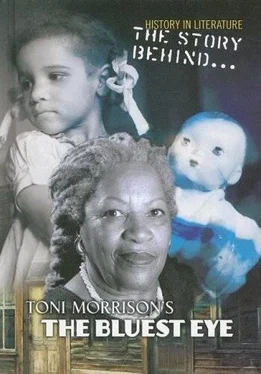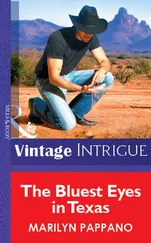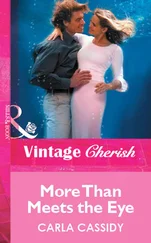"No'm."
"Ain't 'llowed to what?"
"Go in your house."
"Is that right?" The waterfalls were still. "How come?"
"My mama said so. My mama said you ruined." The waterfalls began to run again. She put the root-beer bottle to her lips and drank it empty. With a graceful movement of the wrist, a gesture so quick and small we never really saw it, only remembered it afterward, she tossed the bottle over the rail at us. It split at our feet, and shards of brown glass dappled our legs before we could jump back. The Maginot Line put a fat hand on one of the folds of her stomach and laughed. At first just a deep humming with her mouth closed, then a larger, warmer sound. Laughter at once beautiful and frightening. She let her head tilt sideways, closed her eyes, and shook her massive trunk, letting the laughter fall like a wash of red leaves all around us. Scraps and curls of the laughter followed us as we ran. Our breath gave out at the same time our legs did. After we rested against a tree, our heads on crossed forearms, I said, "Let's go home." Frieda was still angry-fighting, she believed, for her life. "No, we got to get it now."
"We can't go all the way to the lake."
"Yes we can. Come on."
"Mama gone get us."
"No she ain't. Besides, she can't do nothing but whip us." That was true. She wouldn't kill us, or laugh a terrible laugh at us, or throw a bottle at us. We walked down tree-lined streets of soft gray houses leaning like tired ladies… The streets changed; houses looked more sturdy, their paint was newer, porch posts straighter, yards deeper. Then came brick houses set well back from the street, fronted by yards edged in shrubbery clipped into smooth cones and balls of velvet green. The lakefront houses were the loveliest. Garden furniture, ornaments, windows like shiny eyeglasses, and no sign of life.
The backyards of these houses fell away in green slopes down to a strip of sand, and then the blue Lake Erie, lapping all the way to Canada. The orange-patched sky of the steel-mill section never reached this part of town. This sky was always blue. We reached Lake Shore Park, a city park laid out with rosebuds, fountains, bowling greens, picnic tables. It was empty now, but sweetly expectant of clean, white, well-behaved children and parents who would play there above the lake in summer before half-running, half-stumbling down the slope to the welcoming water. Black people were not allowed in the park, and so it filled our dreams.
Right before the entrance to the park was the large white house with the wheelbarrow full of flowers. Short crocus blades sheathed the purple-and-white hearts that so wished to be first they endured the chill and rain of early spring. The walkway was flagged in calculated disorder, hiding the cunning symmetry. Only fear of discovery and the knowledge that we did not belong kept us from loitering. We circled the proud house and went to the back. There on the tiny railed stoop sat Pecola in a light red sweater and blue cotton dress. A little wagon was parked near her. She seemed glad to see us. "Hi."
"Hi."
"What you all doing here?" She was smiling, and since it was a rare thing to see on her, I was surprised at the pleasure it gave me. "We're looking for you."
"Who told you I was here?"
"The Maginot Line."
"Who is that?"
"That big fat lady. She lives over you."
"Oh, you mean Miss Marie. Her name is Miss Marie."
"Well, everybody calls her Miss Maginot Line. Ain't you scared?"
"Scared of what?"
"The Maginot Line." Pecola looked genuinely puzzled. "What for?"
"Your mama let you go in her house? And eat out of her plates?"
"She don't know I go. Miss Marie is nice. They all nice."
"Oh, yeah,"
I said, "she tried to kill us."
"Who? Miss Marie? She don't bother nobody."
"Then how come your mama don't let you go in her house if she so nice?"
"I don't know. She say she's bad, but they ain't bad. They give me stuff all the time."
"What stuff?"
"Oh, lots of stuff, pretty dresses, and shoes. I got more shoes than I ever wear. And jewelry and candy and money. They take me to the movies, and once we went to the carnival. China gone take me to Cleveland to see the square, and Poland gone take me to Chicago to see the Loop.
We going everywhere together."
"You lying. You don't have no pretty dresses."
"I do, too."
"Oh, come on, Pecola, what you telling us all that junk for?" Frieda asked. "It ain't junk."
Pecola stood up ready to defend her words, when the door opened.
Mrs. Breedlove stuck her head out the door and said, "What's going on out here? Pecola, who are these children?"
"That's Frieda and Claudia, Mrs. Breedlove."
"Whose girls are you?" She came all the way out on the stoop. She looked nicer than I had ever seen her, in her white uniform and her hair in a small pompadour. "Mrs. MacTeer's girls, ma'am."
"Oh, yes. Live over on Twenty-first Street?"
"Yes, ma'am."
"What are you doing 'way over here?"
"Just walking. We came to see Pecola."
"Well, you better get on back. You can walk with Pecola. Come on in while I get the wash." We stepped into the kitchen, a large spacious room. Mrs.
Breedlove's skin glowed like taffeta in the reflection of white porcelain, white woodwork, polished cabinets, and brilliant copperware. Odors of meat, vegetables, and something freshly baked mixed with a scent of Pels Naphtha. "I'm gone get the wash.
You all stand stock still right there and don't mess up nothing." She disappeared behind a white swinging door, and we could hear the uneven flap of her footsteps as she descended into the basement. Another door opened, and in walked a little girl, smaller and younger than all of us. She wore a pink sunback dress and pink fluffy bedroom slippers with two bunny ears pointed up from the tips. Her hair was corn yellow and bound in a thick ribbon. When she saw us, fear danced across her face for a second. She looked anxiously around the kitchen. "Where's Polly?" she asked. The familiar violence rose in me. Her calling Mrs. Breedlove Polly, when even Pecola called her mother Mrs.
Breedlove seemed reason enough to scratch her. "She's downstairs," I said. "Polly!" she called. "Look," Frieda whispered, "look at that." On the counter near the stove in a silvery pan was a deep-dish berry cobbler. The purple juice bursting here and there through crust. We moved closer. "It's still hot," Frieda said. Pecola stretched her hand to touch the pan, lightly, to see if it was hot. "Polly, come here," the little girl called again. It may have been nervousness, awkwardness, but the pan tilted under Pecola's fingers and fell to the floor, splattering blackish blueberries everywhere. Most of the juice splashed on Pecola's legs, and the burn must have been painful, for she cried out and began hopping about just as Mrs. Breedlove entered with a tightly packed laundry bag. In one gallop she was on Pecola, and with the back of her hand knocked her to the floor. Pecola slid in the pie juice, one leg folding under her. Mrs. Breedlove yanked her up by the arm, slapped her again, and in a voice thin with anger, abused Pecola directly and Frieda and me by implication. "Crazy fool… my floor, mess… look what you… work get on out now out crazy… my floor, my floor… my floor." Her words were hotter and darker than the smoking berries, and we backed away in dread. The little girl in pink started to cry. Mrs. Breedlove turned to her. "Hush' baby, hush.
Come here. Oh, Lord, look at your dress. Don't cry no more. Polly will change it." She went to the sink and turned tap water on a fresh towel. Over her shoulder she spit out words to us like rotten pieces of apple. "Pick up that wash and get on out of here, so I can get this mess cleaned up." Pecola picked up the laundry bag, heavy with wet clothes, and we stepped hurriedly out the door. As Pecola put the laundry bag in the wagon, we could hear Mrs. Breedlove hushing and soothing the tears of the little pink-and-yellow girl. "Who were they, Polly?"
Читать дальше











